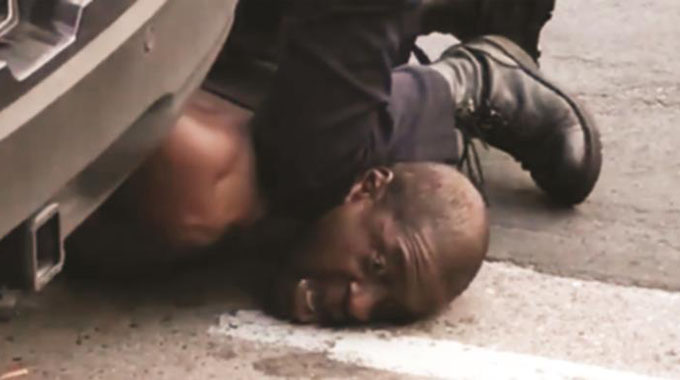US police fail to meet basic human rights standards

Police in America’s biggest cities are failing to meet even the most basic international human rights standards governing the use of lethal force, a new study from the University of Chicago has found.
Researchers in the university’s law school put the lethal use-of-force policies of police in the 20 largest US cities under the microscope. They found not a single police department was operating under guidelines that are compliant with the minimum standards laid out under international human rights laws.
Among the failings identified by the law scholars, some police forces violate the requirement that lethal force should only be wielded when facing an immediate threat and as a last resort. Some departments allow deadly responses in cases of “escaping suspects”, “fugitives”, or “prevention of crime” — all scenarios that would be deemed to fall well outside the boundaries set by international law.
In other cities, police guidelines failed to constrain officers to use only as much force as is proportionate to the threat confronting them.
Remarkably, the researchers from the law school’s international human rights clinic discovered that none of the 20 police departments were operating under state laws that were in accord with human rights standards.
America’s biggest police forces lack legality, the study finds, because they are not answerable to human rights compliant laws authorising the use of lethal force.
“The fact that police forces in the biggest US cities don’t meet very basic human rights standards is deeply concerning,” said Claudia Flores, the clinic’s director.
The Chicago study underlines how far policing in America is adrift from international norms, making the US a lonely outlier on the world stage. Across Europe, policing policies are much more closely aligned with human rights directives.
In Spain, for instance, officers have to use verbal cautions and fire warning shots before they are permitted to aim at anybody. Chokeholds have been banned in Europe for many years.
The Chicago researchers conclude too much deadly discretion is given to police officers in the US.
The use of force, they say, is a form of “state-sanctioned violence” that society only grants police officers as part of their responsibility “to protect public safety and enforce the law when necessary”.
The lax framework of US policing has contributed, the authors say, to the spate of police killings of unarmed black people. Victims include George Floyd whose death in police custody in Minneapolis in May sparked weeks of protests around the country.
In an interview with the Guardian this week, Agnès Callamard, the UN monitor on extrajudicial, summary or arbitrary executions, said she was “horrified because we are watching people dying in public at the hands of those who are supposed to protect us.”
Callamard’s comments came as the UN human rights council in Geneva held an urgent debate on racism and police conduct in the US.
The need for restrictions on police power has been recognised in international law for 40 years. Two basic human rights are involved: the right to life and personal security, and the right of freedom from discrimination. Those rights have also been enshrined in core United Nations standards. All 193 member nations of the UN, including the US, have signed up to a code of conduct for law enforcement officials adopted in 1979.
Recent deaths in police custody have underlined the fatal results of officers applying lethal force in situations that do not conform to “last resort”. Floyd died after he was pinned down under an officer’s knee for 8 minutes and 46 seconds, though he had not appeared to resist arrest.
Rayshard Brooks died when he was shot twice in the back as he was running away from an Atlanta police officer earlier this month, though prosecutors said he posed no threat. The officer, Garrett Rolfe, was charged this week with felony murder.
When things go wrong, the Chicago study also found that police use-of-force policies fall woefully short on accountability. All 20 city forces were found to have internal systems for reporting the deployment of lethal force, but only two — Los Angeles and Chicago — require independent external investigations to be carried out in tune with international standards.
Houston, San Antonio, San Diego, Austin, Indianapolis, Charlotte, Seattle and El Paso had no external reporting requirements. — Guardian.









Comments